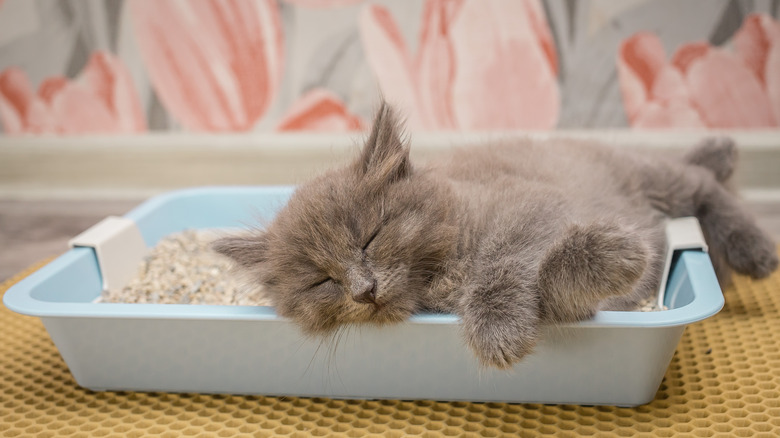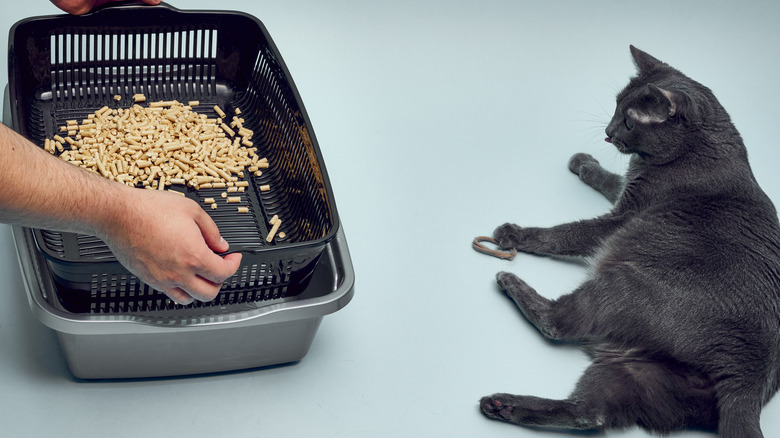Throw Your Cat's Litter Box Away Immediately If You Notice This
While dog people may turn their noses up at the thought of a litter box, The Humane Society reports that cats who use litter boxes may (in some cases) make for a cleaner household than their canine counterparts. That's because pet lovers don't have to go through the trouble of training a cat to use the appropriate bathroom spot, as they would for dogs. It is a natural impulse to use a litter box, which saves cat owners the headache of bathroom training their companion.
However, the smell of a litter box can be a turn-off for many cat owners. That doesn't have to be an issue! Scooping your cat's box daily can keep odors at bay, per The Spruce Pets. Plus, you can purchase different types of litter that prevent mess and smells from spreading. Litter boxes are surprisingly low maintenance as long as you keep them clean! However, that's not to say that issues can't still occur. It's important to keep a close eye on your cat's litter box, as well as their bathroom habits, to ensure optimum health.
A dirty litter box is a health risk to everyone in the house
Of course, cat feces call your pet's litter box home. With that, there are risks to both you and your feline's health, as ModKat notes. If you go too long without scooping the box, harmful bacteria can form. This bacteria can lead to harmful diseases, like Cat Scratch Fever. Salmonellosis is another sickness caused by dirty litter boxes — and while your kitty might not show symptoms of this infection, it can cause diarrhea, fever, abdominal cramps, and vomiting in owners. As ModKat notes, Salmonellosis infects about 200,000 people in the United States each year.
Thus, it's important to toss an overly dirty litter box. Failure to regularly clean a litter box may cause a combination of days-old cat urine or feces and plant-based litter to form mold, per 911 Restoration. Mold can be harmful to your health, so anyone who notices mold forming in a cat's box should make sure to throw it away immediately. The good news is that these issues are uncommon when pet owners regularly clean their cat's boxes. Scooping daily and deep cleaning a litter box every other week with soap and water should be enough to avoid any serious issues, according to Purina. And as 911 Restoration notes, don't forget to change the litter itself, which should be switched every couple of weeks for non-clumping litter and once a month for clumping litter.

